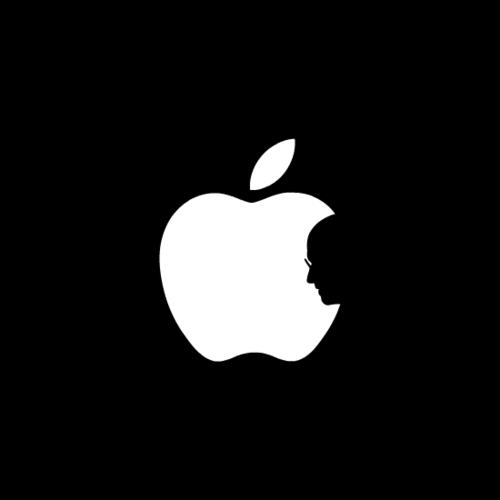Steve Jobs Was Our Elvis
Steve Jobs is dead, and I’m more than a little choked up. I’m not the most stoic of people (when Dumbo goes to visit his mom in prison I go to pieces) so it’s really not that surprising. But, it turns out, that I am not alone. Thousands of tweets are pouring in, expressing their condolences. World leaders have stopped to say a few words.
And I’m wondering, “why?” When John Lennon died and thousands gathered in a days-long vigil, that made sense.When Abraham Lincoln died, his body was taken on a final tour of the country he helped reunite and was met with tens of thousands of mourners, and that made sense. But Jobs never recorded a hit song, or led a country. He was a businessman, and a salesman. I have never seen so much emotion poured out on a CEO before, and it really is something of a puzzle. I have given the matter some thought, and propose three possible answers.
The first is simple success and ubiquity. As many on Twitter observed, it’s more than likely that many people read of Jobs’ death on a device he helped create. Since the iPod’s launch in 2001 — a risky foray into music for a computer manufacturer, and trademark Jobs — Apple has managed to put a device in the pocket of just about everyone.
His company’s success spread Jobs’ persona, and some of his beliefs about design and the interaction between people and machines, to millions. Moreover, a computer and a music player are objects that you spend a lot of your time with, sometimes intimate times. Many develop personal relationships with their devices — no doubt another piece of Jobs’ legacy.
But it seems unfair to simply say that his success, or even the quality of his products, are the reason for amazing public mourning. In part because it makes all of us with sadness in our hearts sound rather petty, but also because Jobs didn’t design every Apple product or even make them himself. True, he had a vision for the company, but Johnny Ive and the engineers at Apple are the ones that made his dream a reality.
It may be then that it was not merely the objects, but the story of the man behind them that people find so compelling. The origins of Apple, which can be traced back to the magical pairing of Steve Jobs and Steve Wozniak in a California garage, drips with the self-starting rags-to-riches narrative that truly moves people.
Incredibly, it’s a story that seems to be repeated throughout Jobs’ life. Half Syrian by birth and raised by his adoptive parents Paul and Clara Jobs, Steve would go on to drop out of college after a single year and make ends meet by returning bottles until getting a job at Atari. After founding Apple Computers with Wozniak in 1976, Jobs was ousted from the company in 1985 and founded a new one: NeXT. With Apple in a financial tailspin, he was brought back as CEO in 1996, and pushed out new products like the iMac and the iPod that helped restore Apple’s fortune.
What happened next you likely already know: Apple slowly built upon these successes with more mobile products, the iTunes music store — the first of its kind, in a world still struggling to understand purchasing digital media. Jobs didn’t just build a company out of nothing, he did it twice with the same company.
It’s a particularly American story, similar to that of Rockefeller or Carnagie, and one that certainly gives hope to the many creative souls struggling in these hard economic times. However, I believe there is something larger at work here that I think explains much about why Jobs has been such an intriguing character, and why we’re going to be talking about him long after his death.
In many ways, Jobs was the first of his breed. Now, we all take the idea of building a technology start-up company for granted. Instead of it being regarded as a wild gamble, it has become a sound business practice. Jobs was, if not the first, then one of the most public to do so. Moreover, the products he introduced — especially the original Macintosh in 1984 — were a culmination of what the entire community of geeks huddled around their Altairs and mainframes had been struggling to do.
Of that original crop of technology bigwigs that were born out of the silicon revolution, Steve Jobs has been the first to die. He headed the first bold startup, was the first whiz-kid to strike it rich with technology. The Zuckerburgs and everyone who follow him will all do so in Steve’s footsteps. Add to that his incredible life story, and his amazing products, and you have what we’re seeing today: Hundreds of people taking single bites out of apples and leaving them amidst candles and flowers outside of stores across the country.
In the comic strip Achewood, three characters discuss the death of Michael Jackson. The older and wiser of the three explains their grief this way:
“He was your Elvis, and when your Elvis dies, so does the private lie that someday you will be young once again, and feel at capricious intervals the weightlessness of a joy that is unchecked by the injuries of experience and failure.
In other words, you two died a bit today. Welcome to the only game in town.”
For the geeks, for the people making their living in technology, and the kids who grew up with computers, Steve Jobs was our Elvis.
(image via Jonathon Mak)
- Our first announcement of Steve Jobs’ death
- This is what the Internet has to say about Steve Jobs’ death
Have a tip we should know? tips@themarysue.com
